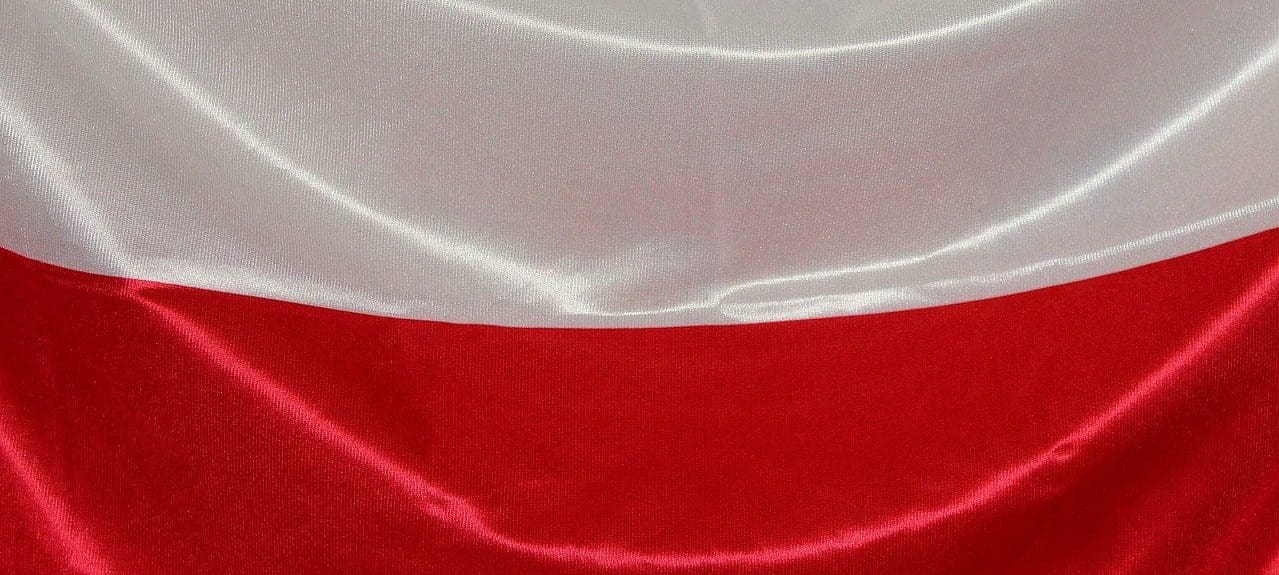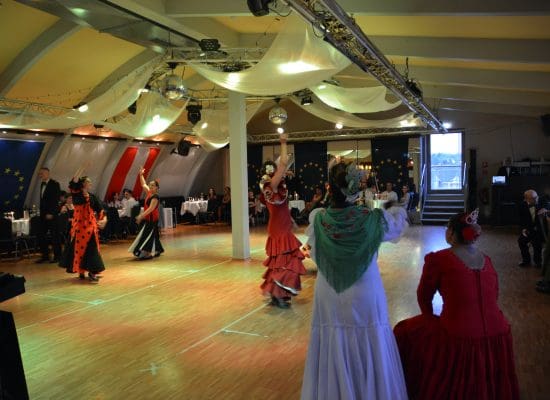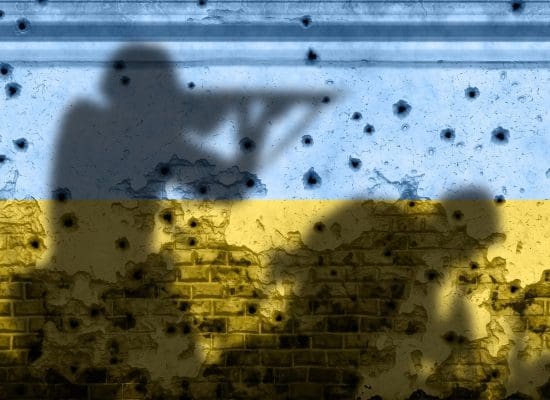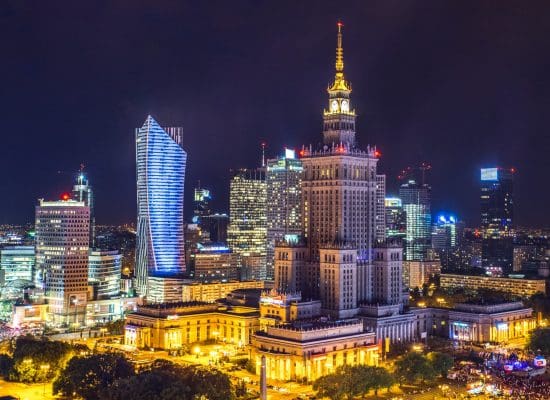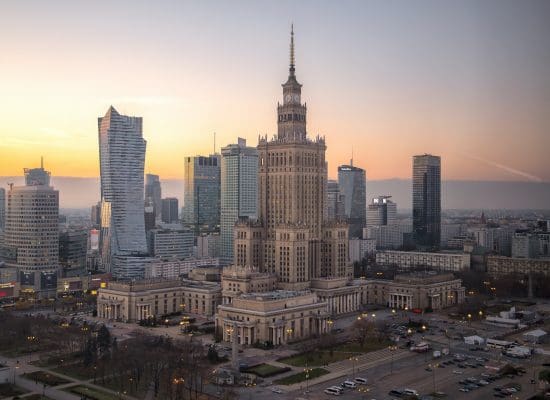Feature photo: Polish flag
The Dutch Prime Minister Mark Rutte issued a devastating testimony to EU member Hungary on the sidelines of the EU summit on June 24.6.2021, XNUMX: "In my opinion, they no longer have any place in the European Union."
In her report on the state of the EU at the beginning of 2022, the journalist wrote Katrin Pribyl on January 4.1.2022th, XNUMX in the Heilbronn voice, that the situation between Poland and the EU is also threatening to escalate. In my opinion, such clear statements are necessary in order to make it clear to the voters in Hungary and Poland that their governments are playing the wrong tune in the European concert.
In the following article, I want to show an example of how the PiS government in Warsaw is trying — despite all protestations and in contradiction to the fundamental values of the European Union — to silence critical voices in the country and an important element of a free and democratic society, diversity of opinion and undermine freedom of expression. The government in Warsaw is proceeding in a similar way to its autocratic neighbor Russia. And yet there is (still) one major difference: the PiS government in Warsaw can be voted out of office in the autumn 2023 elections.
The difference between Poland and Russia: The Polish government can be voted out
On Tuesday, December 28, 2021, the Russian Supreme Court in Moscow – following the request of the Prosecutor General – ordered the dissolution of the Russian human rights organization Memorial. The Attorney General's Office accused the organization of creating the false image of a terrorist state of the Soviet Union. It is obvious that Memorial "Nazi criminals rehabilitated with blood of Soviet citizens on their hands." Memorial countered that it reported truthfully on events in the Soviet past. The Russian President Vladimir Putin had already set the direction before the trial. While acknowledging the organization's high reputation, he also accused it of including people involved in murders in its list of victims of Soviet oppression (sueddeutsche.de, December 28.12.2021, XNUMX: "Supreme Court Bans Memorial").
Memorial has announced that it will appeal against the ban, ultimately to the European Court of Human Rights in Strasbourg.
The human rights organization Memorial was by the Russian Nobel Peace Prize winner in the late 1980s Andrei Sakharov and other dissidents. The organization was awarded the Alternative Nobel Prize in 2004. She sees her main task in coming to terms with the crimes of the Stalin era and keeping alive the memory of the terrible conditions in the Gulags and their victims. In addition, sit down Memorial for prisoners who the organization believes are being held for political reasons. On the list of Memorial there are 349 names, including those of supporters of the imprisoned opponent of the Kremlin Alexei Navalny. In other words: it works Memorial to "come to terms" with Russia's past, which brought the organization more and more into conflict with the official Russian interpretation of this period of history. the New York Times writes about the ban of Memorial is another step in Putin's effort to reframe Russia's legacy into a succession of great achievements, while softening the image of the often brutal Soviet regime. Therefore, an alternative interpretation of Russian history should like Memorial to not give. (nytimes.com, 28.12.2021/XNUMX/XNUMX: "Russian Court Orders Human Rights Group to Shut).
One of the instruments used to control and tame Russian civil society and to persecute dissidents is the 2012 “Foreign Agents Law”. Süddeutsche Zeitung describes it as follows: “The law provides that recipients of payments from abroad can be signed as “agents”. Many journalists are also affected. The set of rules is internationally criticized as a political instrument for arbitrary decisions against those who think differently. There are also complaints that those who stand up for human rights are stigmatized as spies. Memorial has long been calling for the law to be repealed" (sueddeutsche.de, 28.12.2021/XNUMX/XNUMX: “Supreme Court in Russia dissolves human rights organization Memorial on"). the New York Times describes this obligation to call oneself “foreign agents” as the stigma of being in the pay of foreign governments. Memorial was fined several times because the organization refused to describe itself as a "foreign agent".
Reactions to the ban verdict
Quote from the Süddeutsche Zeitung: “In a joint statement, twelve German organizations sharply attacked the court ruling in Moscow. "With the ban of Memorial – the moral backbone of Russian civil society – the Russian state gives a harrowing testimony,” it says. He fights “the confrontation with one’s own history of injustice and would like to monopolize individual and collective memory.” The signatories, including the Böll Foundation, of German-Russian exchange and pen center, spoke of a “politically motivated approach by the Russian judiciary”. Vice-Chairman of the Socialist Group in the Council of Europe, axel shepherd, he said Süddeutsche Zeitung: "The verdict breathes a whiff of neo-Stalinism and is a historic turning point in dealing with the opposition in the Putin era" (sueddeutsche.de, 28.12.2021/XNUMX/XNUMX: "Supreme Court Bans Memorial"). Also President Frank-Walter Steinmeier condemned the action against memorial, he said it was "stunned" (sueddeutsche.de, 28.12.21/XNUMX/XNUMX: “Supreme Court in Russia dissolves human rights organization Memorial on").
Banning Memorial – Putin's warning to all critics
The human rights organization, which has been working in Russia for over 30 years, will – if the ban is not overturned in the appeals court – fall into the gears of Putin's “New Russia”. Linked in his commentary "Muttakers instead of Mutmacher". Frank Nienhuysen the process of developments since the collapse of the Soviet Union 30 years ago: “This is a heavy blow for Russian civil society. How should critical enlightenment, civic engagement arise when even such a recognized organization as Memorial can be broken so easily? The state does not encourage its citizens, it discourages them. At the same time, this ban is a heavy defeat for the last president of the Soviet Union, which was dissolved 30 years ago, Mikhail Gorbachev. In his reckoning with the system, he once preached glasnost, more transparency when dealing with the past. Today the Kremlin has no interest in that. It is not without reason that Gorbachev filed a lawsuit against Memorial criticized; but in vain" (sueddeutsche.de, 28.12.2021/XNUMX/XNUMX: "Empowerers instead of encouragers"; comment by Frank Nienhuysen).
It must now be expected that "New Russia" will take action against all critics of the regime,
- who present and interpret the history of the Soviet Union in a differentiated manner and thus contradict the official interpretation of the Kremlin. Civil society is forbidden from critically examining its own history.
- maintain contacts with the outside world, especially with foreign journalists.
Memorial was primarily concerned with the processing of Stalinist crimes and was therefore - according to the official interpretation - "politically active" and fell under the label of "agent".
The Fate of Momorial Activist Yuriy Dmitriev
At a single fate is in the Süddeutsche Zeitung described the crooked ways of the Russian judiciary memorialactivists will have to reckon with in the future. "The Fate of Yuri Dmitriev and that of Memorial are inextricably linked,” writes the journalist Silke Bigalke in their report. Dmitriev has become the victim of a judicial farce in Russian Karelia because he has dealt intensively with a period of Russian history that the Kremlin would prefer to forget. "Yuriy Dmitriev dug up the bones of the victims of the Great Terror in Karelia, found the remains of thousands of shot Russians, Ukrainians, Finns, Poles, Georgians," says the journalist.
On December 29.12.2021, XNUMX - one day after the Moscow ban verdict against memorial Dmitriev was sentenced to 15 years in a prison camp by a court in Karelia. The allegation against him: child abuse. He was initially accused of having taken pornographic photos of his foster daughter, but several experts could not see anything pornographic in the photos - Dmitriev was acquitted in 2018. But the Supreme Court of Karelia withdrew the acquittal and abuse was added, initially with the result: 3 ½ years in prison. "Again, the higher court intervened, so it went back and forth until the verdict, which was obviously politically desired: 15 years. Apparently, the intention was also to destroy Dmitriev's reputation and thus make everything he achieved seem worthless" (sueddeutsche.de, 4.1.2022/XNUMX/XNUMX: “Tell the truth and don’t be afraid of anything”).
Putin's Russia a role model for Poland?
Since 2012, there has been a law on foreign agents in Russia. Apparently a tried and tested means of silencing critical voices and pushing activists who the government believes are damaging the country's image out of the public eye. The simple recipe for this: strict surveillance and – if control does not help – labeling as an “agent of a foreign government”. An active and independent civil society is apparently undesirable in Putin's Russia; the direction of society is set in the Kremlin. The human rights organization Memorial recently had to experience this bitterly.
Has Putin's Russia now become a role model for the nationalist PiS government in EU member state Poland? Added to all the anger about the Polish judicial reform, the rule of law and the violation of the fundamental values of the EU treaty was the bizarre ballet on the Polish media law, which is obviously aimed at the TV station TVN24, which is critical of the government. Although TVN24 is registered in Holland, it belongs to the US group discovery. The seat of the owner company outside the EU should give the leverage to take TVN24 out of service in Poland. Should the new media law become legally binding, Discovery give up its majority stake in TVN6 within 24 months. I use the term "bizarre" in connection with the law because, while the motives of the lawmakers were clear from the start and also of the Polish President Andrzej Duda, who comes from the PiS government party, were accompanied without objection. Now, however, Duda has pulled the emergency brake and vetoed the media law. A step that leads to a whole series of questions:
Why did Duda suddenly realize the legal problems after the law had been passed in the Sejm? Even during the legislative deliberations, the legal service of the Polish Senate pointed out that the anti-TVN law contradicted a number of points in the Polish constitution, the EU treaties and a Polish-US trade agreement from 1990. Were these problems not already evident when the law was passed? Media Law announced in the Sejm in August 2021? Or has the Polish government misjudged the US protest against the law and Duda was supposed to use his veto to limit the damage and avert further isolation of the country? Or is Andrzej Duda actually in the process of breaking away from the PiS chairman Jaroslaw Kaczynski, to avert the "grey eminence" in the Polish government, as stated in a report by the Süddeutsche Zeitung cautiously indicated? (sueddeutsche.de, December 28.12.2021, 2023: “The rebellion of the notary”). I have my doubts about such a change of position by Duda, since for years he had signed legally dubious laws that the ECJ later branded as a violation of European law. I'm more inclined to think that the ruling party's ballyhoo was staged with a view to the XNUMX parliamentary elections in order to keep PiS's core voters loyal.
The dance around the Polish media law
In a guest post in the New York Times describe the historian and sociologist Carolina Wigura and the political expert Jaroslav Kuisz Poland's path from the collapse of the communist regime to the present. You describe Poland as the most successful model of democratic transformation in Central and Eastern Europe. The former EU enlargement commissioner is quoted Gunther Verheugen, who spoke of a "new golden age" for Poland. However, it is stated that today Poland is leading in a completely different direction. The government, led by the Law and Justice Party (PiS), has stood at loggerheads with the EU, transformed the country's judicial structures, enacted laws to muzzle independent media and took a hard line on women's rights issues (nytimes.com, 29.12.2021/XNUMX/XNUMX: "What Happened to Poland?"; guest post by Carolina Wigura and Jaroslav Kuisz). In another report by New York Times is a succinct description of where Poland is currently seen in terms of media freedom: according to the organization's ranking Reporters Without Borders Poland has constantly slipped and is now behind Malawi and Armenia" (nytimes.com 27.12.2021/XNUMX/XNUMX: "Poland's President Says he Will Veto Media Bill Opposed by US").
The way in which the new Polish media law was advanced fits in with the process of deterioration in the area of press freedom described in this way. the Süddeutsche Zeitung describes this political process as follows: “As early as August 11 [2021], the Sejm decided that only stations whose majority owners come from Poland or from the European Economic Area (EU plus Norway, Iceland and Liechtenstein) are allowed to operate in Poland. Actually, TVN24 also falls under this protection: Formally, the station belongs to those registered in Holland Polish Television Holding, a subsidiary of the US parent company discovery. But the government ruled that owners who are located in the European Economic Area but themselves belong to another owner outside are exempt.”
The opposition-controlled Senate rejected the law on September 9.9.2021, 53 by 100 out of 17.12.2021 votes. However, this veto by the Senate can be overruled in the Sejm with a simple majority. A few weeks later, on December 24, XNUMX, this happened very quickly: After just under an hour, the government majority in the Sejm had settled the opposition’s amendments. "Less than an hour later, the law was passed that is intended to force the US owners of Poland's leading independent television broadcaster TVNXNUMX to sell their controlling majority within a few months to an owner who is suspected to be close to the PiS" (sueddeutsche.de, 2012.2021/XNUMX/XNUMX: “Who controls the media”).
Now was the Polish President Andrzej Duda turn he could either sign the law, veto it, or send it to the Constitutional Court for review (sueddeutsche.de, 20.12.2021/XNUMX/XNUMX: “Who controls the media”).
Why did PiS chairman Kaczynski want this law?
Why did Jaroslaw Kaczynski, the eminence grise in the Polish government, just now launched this controversial law? He had to know that it was legally problematic, that it could bring conflicts with the Americans and would not inspire enthusiasm in large parts of the Polish population, where the news channel TVN24 is popular. In fact, tens of thousands took to the streets in 130 Polish cities against the media law and around 2,5 million people signed a protest petition (sueddeutsche.de, 28.12.2021/XNUMX/XNUMX: "The Rebellion of the Notary").
There were ideological reasons for this law. PiS hardliners have long called for the curtailment of “foreign influences” and want the media spectrum to be limited to those sources that share the ruling party’s deeply conservative and sometimes xenophobic (xenophobic) views. The fact that Kaczynski also saw the associated problems is shown by his public assurances that the media law is not aimed at American investors, but rather that it wants to protect Poland from Russian and Chinese influence and prevent drug lords from buying Polish media with "dirty money" (nytimes.com, 27.12.2021/XNUMX/XNUMX: "Poland's President Says He Will Veto Media Bill Opposed by US").
All of this doesn't really add up. The assumptions about which the Süddeutsche Zeitung reported: "In order to at least distract the PiS core voters, who don't like TVN24 anyway, from a series of juicy scandals." A spectacular traffic accident involving bodyguards of the former PiS head of government is mentioned as an example Beata Szydlo, who lied about what happened and pinned the blame on a simple Pole. In addition, the PiS had fallen in polls from the previous all-time high of 46 percent in autumn 2019 to just 28 percent (sueddeutsche.de, 20.12.2021/XNUMX/XNUMX: “Who controls the media”). It may also be that the veto of the Polish President Andrzej Duda against the media law operated by Kaczynski was Duda's attempt to break away from his political foster father, as the SZ journalist says Florian Hassel suspected with all caution (sueddeutsche.de, 28.12.2021/XNUMX/XNUMX: "The Rebellion of the Notary").
Andrzej Duda's big performance
I remember how Andrzej Duda in summer 2020 shortly before his re-election as President of Poland in Washington DC together with Donald Trump stepped in front of the cameras and effusively praised the United States and the American President at the time. At the time, Trump toyed with the idea of withdrawing significant parts of the American NATO contingent from Germany and relocating some of them to Poland, not least in order to punish Germany for what Trump believed to be too little military spending. The renowned journalist Stephen Cornelius commented on Duda's visit to Washington as follows: "Now if the incumbent President Andrzej Duda If US President Trump is received in the White House four days before the election and Trump makes a clumsy recommendation for the election, then this falls under the category of breaking political rules and democratic indecency, as is now the case with Trump, but also with the PiS. Trump made a serious mistake, however, by promising Duda the stationing of soldiers he intends to withdraw from Germany. (...) Germany is "punished" for its unwillingness to pay. Poland will be rewarded. This milkmaid calculation does not work out for either NATO or Poland. The permanent stationing of a US combat brigade could give the final push to the NATO-Russia Founding Act, which has been undermined by Russia, and thus rob Europe of one of the last bits of security. Poland would then be at the center of an escalation that it cannot want. Even more, Trump's indecent offer promotes a split in NATO itself, especially since the US President wants to conclude his own security treaty with Poland...." (sueddeutsche.de, 27.6.2020/XNUMX/XNUMX: “Duda is harming his own country” – comment by Stephen Cornelius). Political flair and foreign policy foresight showed Andrzej Duda not then; His main concern was to be re-elected to the presidency, which he finally succeeded in the runoff election on July 12.7.2020, 2020. The new US President elected in November XNUMX Joe Biden has meanwhile put the American-Polish intellectual games on hold.
What has not changed, however, is Poland's tense relationship with the European Union and Germany. In her already cited guest article in the New York Times the beschreib Carolina Wigura and Jaroslav Kuisz The consequences of the tense situation: "The country's growing isolation - which the government believes is a sign of Poland's independence - but in reality opens up opportunities for Russia to exert influence, which official circles are reluctant to admit. The situation in Ukraine shows where this can lead” (nytimes.com, 29.12.2021/XNUMX/XNUMX: "What Happened to Poland?"). The Polish government is talking and demanding sovereignty from the EU, while a situation arises in the region that the country cannot handle alone….
Back to the original question: What likes the Polish President Andrzej Duda persuaded to veto the media law? Was this really because of the conviction that it was necessary to preserve Poland's reputation in the world, or are there other reasons? However, apart from various assumptions, nothing concrete was known about it. "Contracts must be observed," said Duda. Poland should be respected in the world as an "honorable nation" (sueddeutsche.de, 28.12.2021/XNUMX/XNUMX: "The Rebellion of the Notary"). Perhaps, apart from Poland's "honesty" in this situation, he should also have addressed the reliability and trust that his country has been losing within the EU for some time. However, his remark was correct: “We do not need any further arguments at this time. We have a lot of problems. We have a pandemic and we have inflation" (nytimes.com, 27.12.2021/XNUMX/XNUMX: "Poland's President Says He Will Veto Media Bill Opposed by US").
The journalist put it very carefully Florian Hassel in the Süddeutsche Zeitung: “His veto of the TVN24 law appear as a first spectacular step to act independently and build a political future without Kaczynski's blessing" (sueddeutsche.de, 28.12.2021/XNUMX/XNUMX: "The Rebellion of the Notary"). I have given special emphasis to the word "appears" in this quote. Should Duda actually want to break away from his foster father, further spectacular steps will be needed. The veto against the media law seems to me rather half-hearted. He did not fundamentally question or even condemn the law, but appealed to the Sejm to find more appropriate solutions to limit the participation of foreign companies in the media market" (sueddeutsche.de, 27.12.2021/XNUMX/XNUMX: "Poland's president stops controversial media law"). It may mean that he would certainly accept a less rigorous media control law. Does this sound like a president concerned about his country's reputation as an "honorable nation"?
What are the next steps?
After his veto, Duda became leader of the opposition Donald Tusk praised, who assumed that the protests against the law had had an effect. Praising Duda was certainly politically wise if he actually wants to swim free from Kaczynski. The US Embassy in Warsaw also welcomed the veto: “Thanks to President Duda for his leadership and his commitment to protecting the investment climate in Poland. Together, allies are stronger" (nytimes.com, 27.12.2021/XNUMX/XNUMX: "Poland's President Says He Will Veto Media Bill Opposed by US"). The US embassy is addressing a point between the lines that went far beyond the media law in the discussions in Poland: the current issue was “only” about foreign investments in a TV station; but what will come next? Poland is proud of the economic development in the past, which was based not least on investments from abroad. And there is no doubt that Poland will need further foreign investment in the future – for example to move from coal to wind power. But what will happen if the investment climate in Poland is "spoiled" by short-sighted policies?
In my opinion, there are at least two unanswered questions about the media law that has been stopped but not withdrawn:
- Why did it Andrzej Duda avoided, despite all strong words about contractors who must be heeded and despite the objective that Poland should be respected in the world as an "honorable nation", avoiding condemning the proposed law and its aim without ifs and buts? Instead, he has appealed to the Sejm to find more appropriate solutions to limit the participation of foreign companies in the media market.
- Now, after Duda's veto, what will happen in the Sejm? It is not to be expected that the "media control" project will disappear into the background. In a new round, PiS and its allies are likely to once again demonstrate their willingness to fight for Poland's sovereignty in accordance with their ideas and against all attempts at "interference in internal affairs" from outside. This phrase, which actually stands for isolation, is part of the vocabulary of autocratically governed countries. The Polish government will not be able to get through the upcoming confrontation with American interests. But with a view to the forthcoming parliamentary elections in 2023, PiS can demonstrate to her electoral base how much she cares about Poland's cultural independence and traditions.
The EU will continue to play the role of the whipping boy and bad boy who wants to dictate how the country should live. EU treaties and obligations aside: it will continue to be important for Poland that money comes from Brussels.
Back to the original topic: elections
Using the example of the ban on the human rights organization Memorial in Russia and the attempt to bring the television station TVN24 into line in Poland, I have shown how appropriate laws are being used in both countries to control and patronize civil society, suppress criticism of the government and to seal off the country from "outside" influences. The concept of cosmopolitanism is contrasted with pride in one's own sovereignty.
In both countries, the laws came about legally, through majority decisions in the respective parliaments. Superficially, they are therefore democratically legitimized. The fact that the rule of law, the basic values of one's own constitution and the unwritten principles of mutual fair and respectful dealings in a democracy fall victim to the striving for power and the retention of power is largely ignored. Election results, no matter how they come about, serve as unquestionable legitimation. (With similar questions and problems, American society has been since the era Donald Trump increasingly busy).
Politically and socially, Russia and Poland are apparently following the same or similar recipes. Putin's Russia has become an authoritarian state. Poland and PiS are on the way there. But there is (still) a fundamental difference: in the parliamentary elections in Poland in 2023, the government can be voted out.
